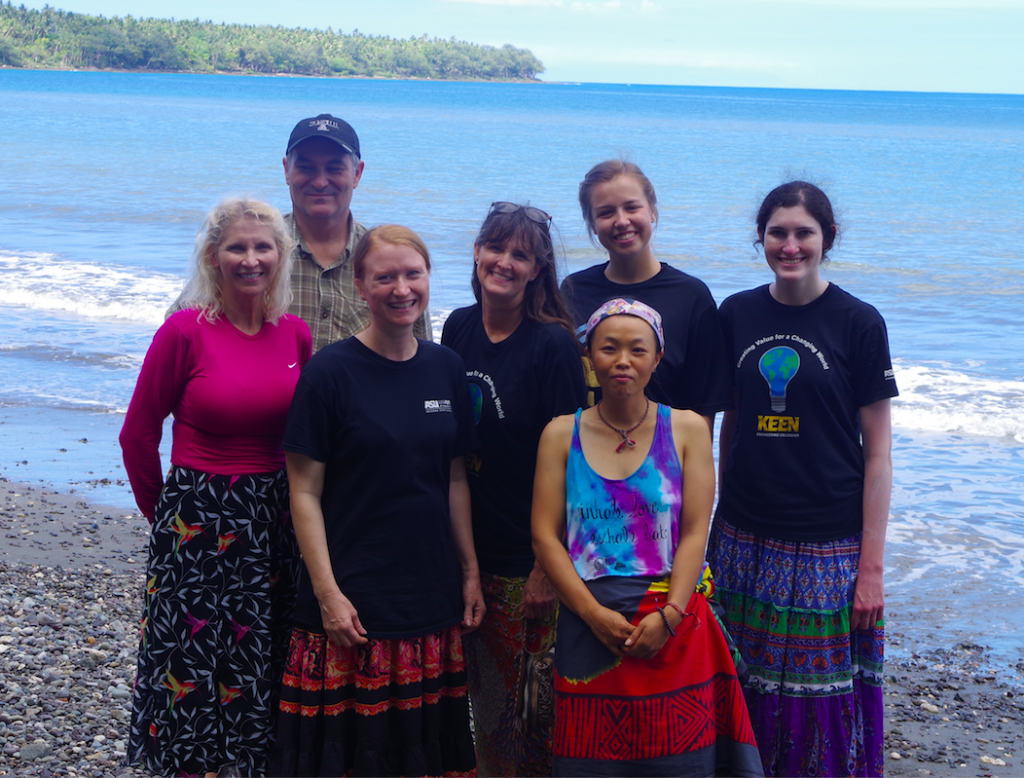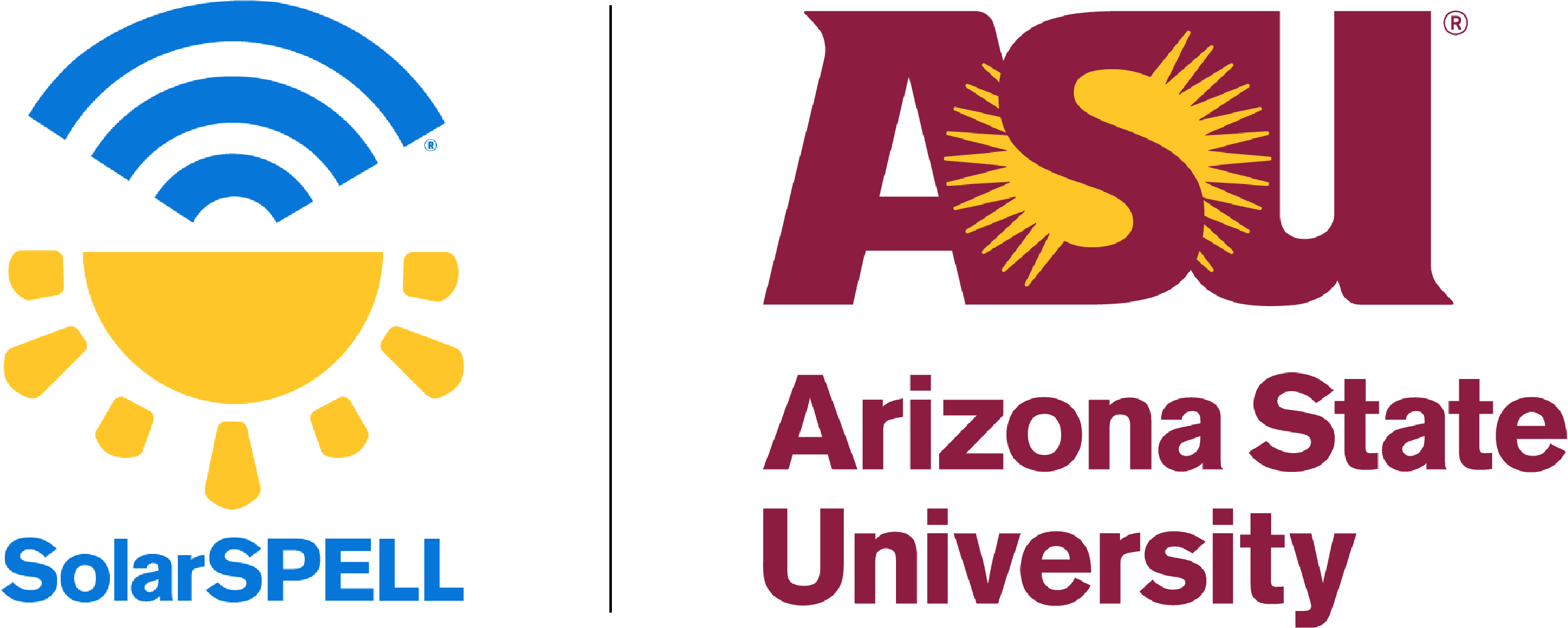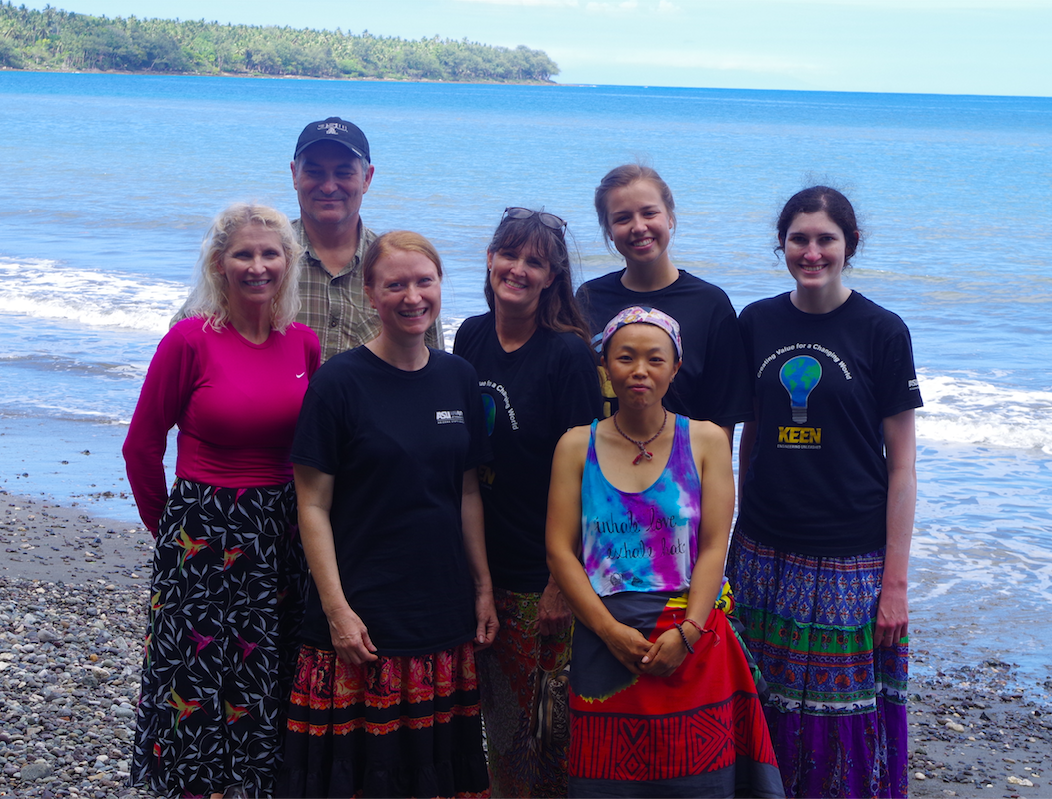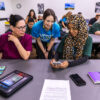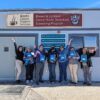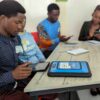CJ, a Doctor of Nursing Practice student from ASU’s College of Nursing and Health Innovation, joined the SolarSPELL team this year and traveled with the team to Vanuatu. Her applied doctoral project focused on helping address low back pain issues among Peace Corps volunteers and citizens of Vanuatu. The following are her travel posts:
12/8/2017
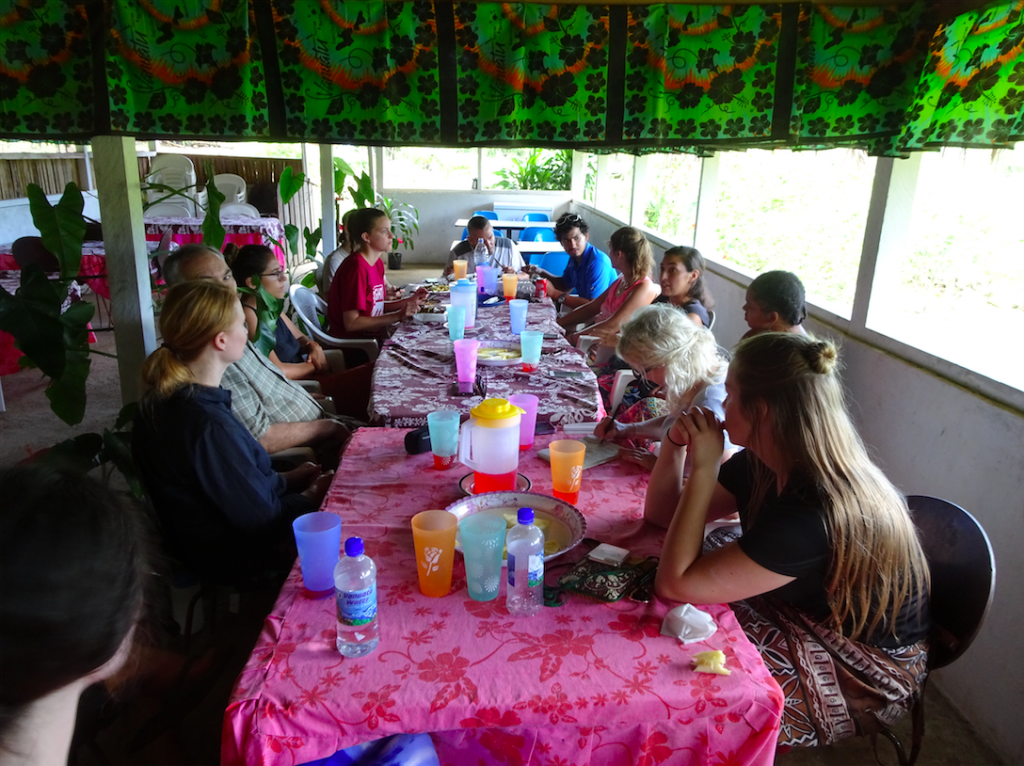 I arrived at the Peace Corps volunteer lunch feeling both excitement and mild trepidation. These people are my heroes. My rock stars. Who I wanted to be in high school, but life took me down another path. Yet, here I am decades later with SolarSPELL. Entering the primitive restaurant, I found volunteers engaged in lively conversation seated around a long table. I sat down next Cristina, an education volunteer from Boston. She welcomed me with a beautiful smile and immediately engaged me in conversation. My teaching was to be on low back pain, a subject specifically interesting to Christina since she, like many volunteers, had been experiencing significant back problems since arriving. This is not surprising given the conditions in Malekula. For example, Christina cultivates a large garden, bends over a fire to cook, general physical labor, and until recently slept upon a two-inch mattress. Christina was very eager to learn how to treat her pain herself, and how to help others in her village do the same.
I arrived at the Peace Corps volunteer lunch feeling both excitement and mild trepidation. These people are my heroes. My rock stars. Who I wanted to be in high school, but life took me down another path. Yet, here I am decades later with SolarSPELL. Entering the primitive restaurant, I found volunteers engaged in lively conversation seated around a long table. I sat down next Cristina, an education volunteer from Boston. She welcomed me with a beautiful smile and immediately engaged me in conversation. My teaching was to be on low back pain, a subject specifically interesting to Christina since she, like many volunteers, had been experiencing significant back problems since arriving. This is not surprising given the conditions in Malekula. For example, Christina cultivates a large garden, bends over a fire to cook, general physical labor, and until recently slept upon a two-inch mattress. Christina was very eager to learn how to treat her pain herself, and how to help others in her village do the same.
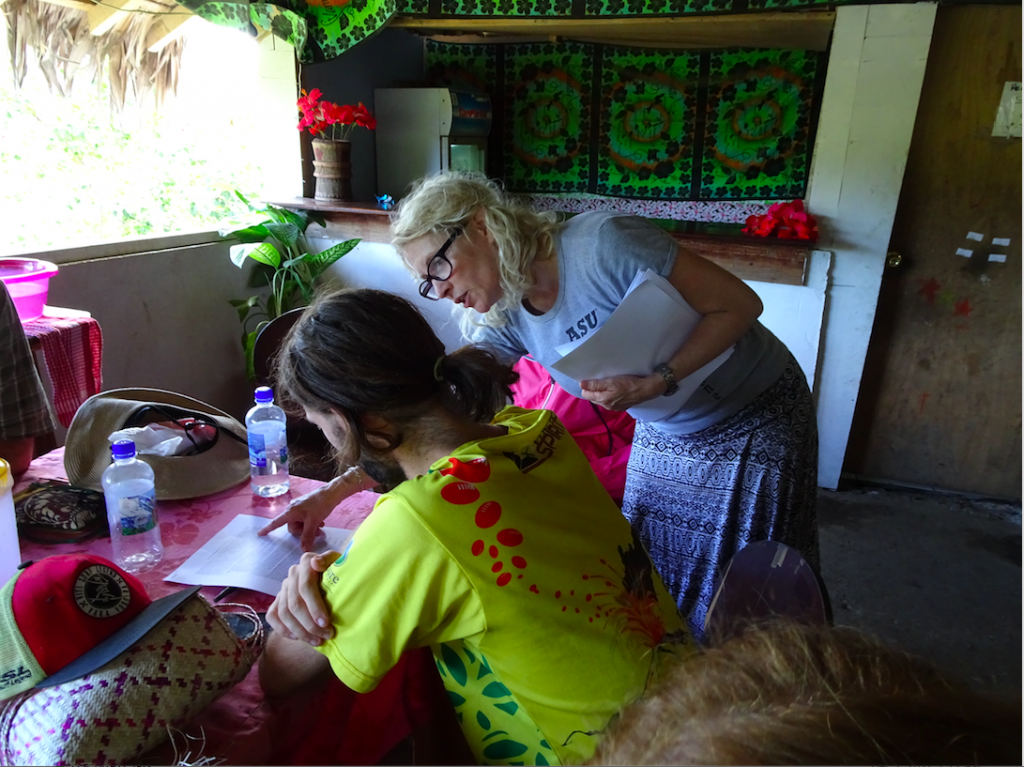
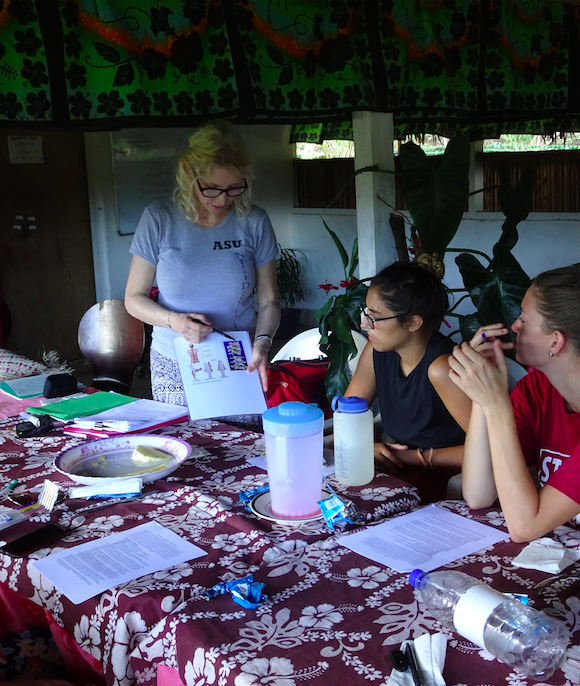
After lunch, I presented the SolarSPELL teaching module which is adapted from the Noninvasive Treatments for Acute, Subacute, and Chronic Low Back Pain: A Clinical Practice Guideline from the American College of Physicians (ACP), 2017 which promotes early mobilization, and exercises based in osteopathic medicine to realign the spine and strengthen the musculature to support proper body mechanics, relieve current pain, and prevent future pain. The volunteers also viewed the companion instructional exercise video created for SolarSPELL.
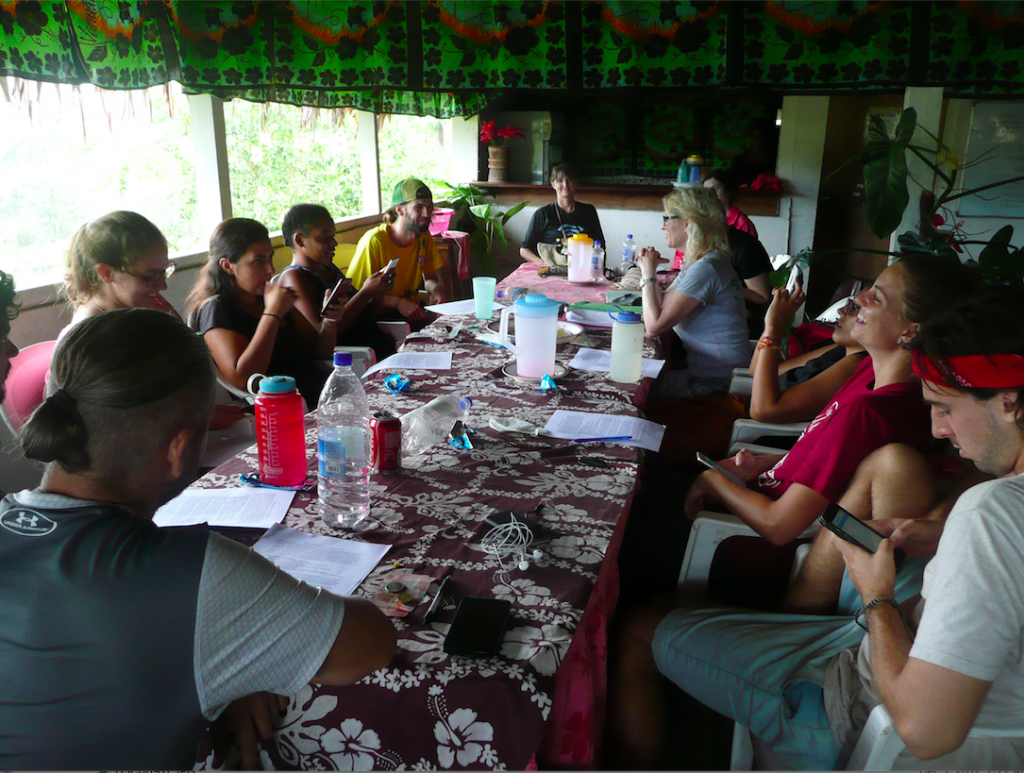
The Peace Corps volunteers assessing the new health content on the SolarSPELL Library for the first time.
On a culturally relevant note, a second line therapy within the ACP guidelines is conservative use of a muscle relaxant limited to the first seven days following the initial injury; an evidence-based method to prevent progression from acute to chronic pain. While Malekula has no access to muscle relaxants, Kava, a traditional medicine used in Vanuatu for 2000 years, has established muscle relaxant properties. So, teaching regarding the safe use of Kava beverage was also completed, where safe use was defined as meeting the standards outlined in the Joint Report of the Food and Agriculture Organization of the United Nations and World Health Organization’s study on Kava Safety (2016) for the South Pacific. The volunteers were all very interested in teaching regarding safe Kava use since it is a ubiquitous element of Vanuatu’s culture; one in which volunteers commonly partake to achieve cultural integration. Until this teaching, the majority were unaware that there were safety differences among the various kava formulations. Safety items taught included: 1. Ranges for maximum daily intake; 2.Kava cannot be combined with medications or alcohol; 3. Risk of liver cirrhosis or failure with misuse; 4. Kava can cause failure treatment in HIV and TB positive patients. The volunteers were very engaged in the teaching, asked relevant questions, and were excited to implement and share the teachings. Their pretest and post-test scores strongly indicate they grasped the content. Access to SolarSPELL content can change lives, and in this case, potentially save lives. These volunteers were empowered, and I am incredible thankful.
12/9/2017
 On day two on Malakula we traveled 90 minutes by van to meet PC health volunteer, Nhia, a RN working at the local health clinic. Nhia is the only allied health professional among the volunteers I’ve been fortunate enough to meet thus far. We arrived at Nhia’s site greeted by the intoxicating aroma of chicken and vegetable curry being prepared by our hostess using ingredients from her garden. We were joined by Niah’s host-family mamma for our incredible meal and conversation.
On day two on Malakula we traveled 90 minutes by van to meet PC health volunteer, Nhia, a RN working at the local health clinic. Nhia is the only allied health professional among the volunteers I’ve been fortunate enough to meet thus far. We arrived at Nhia’s site greeted by the intoxicating aroma of chicken and vegetable curry being prepared by our hostess using ingredients from her garden. We were joined by Niah’s host-family mamma for our incredible meal and conversation.
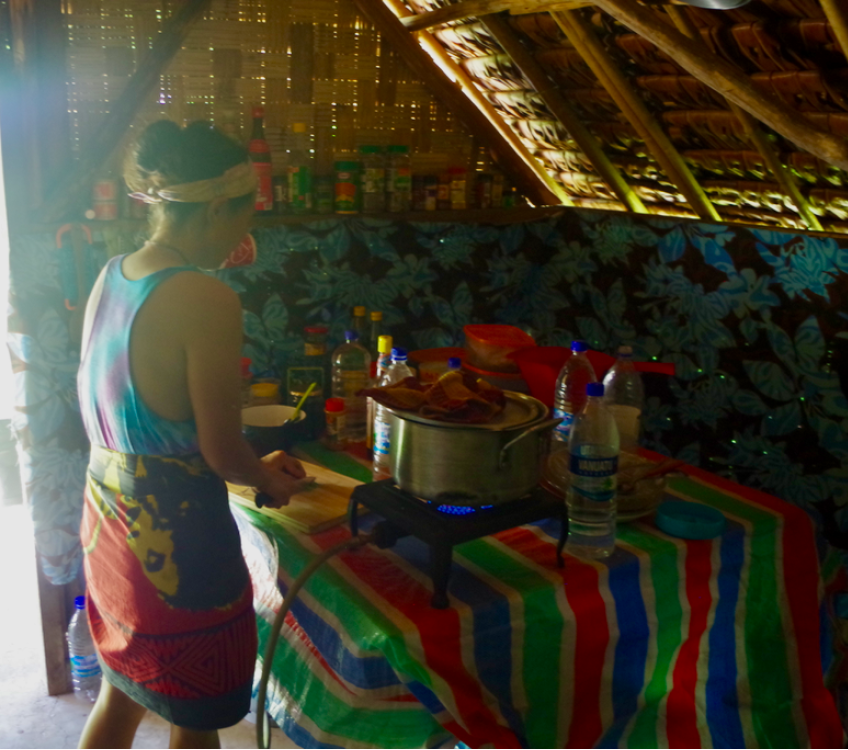
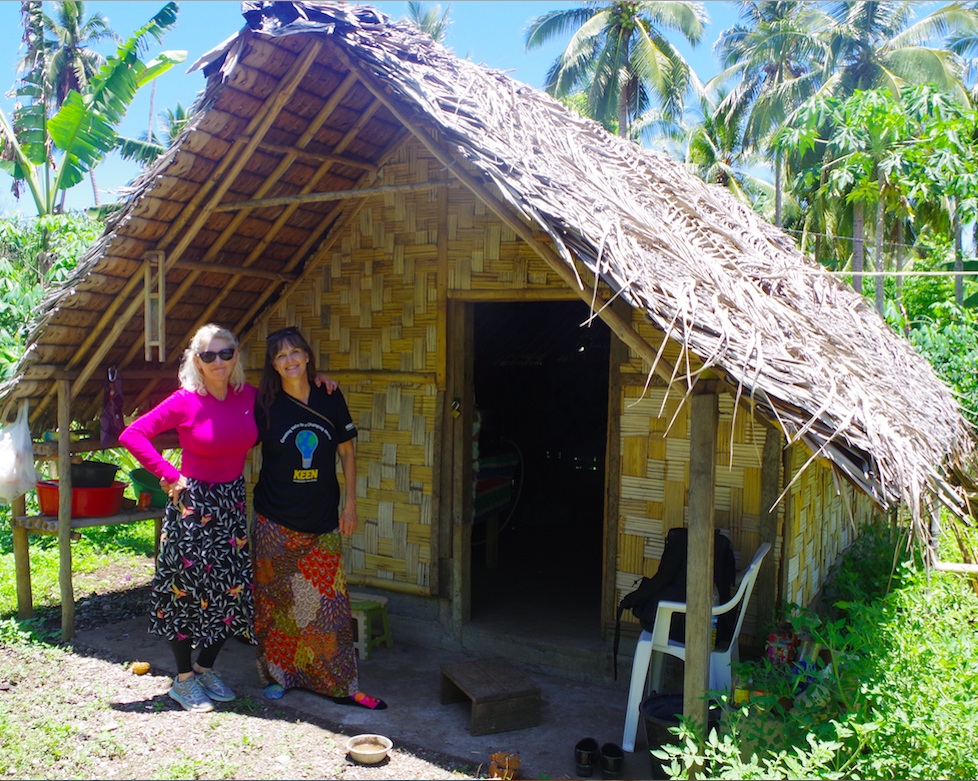
After lunch, we walked a rambling path to the seashore where teaching from the SolarSPELL module on low back pain (LBP) was completed under the shade of an enormous banyan tree. It was wonderful to discuss the treatment guidelines with another nurse, and she was very interested in the core ACP guideline concepts of early mobilization, and osteopathic correction of posture including core strengthening of abdominal and back muscles, stretching, and strengthening. The accompanying instructional video was very well received. Nhia is planning to incorporate it into her practice teaching patients not only the steps, but proper form, and which exercise to perform for a specific complaint within an ever-accessible tutorial. Nhia also expressed that dubbing the video in Bislama would increase effectiveness. We plan to add a version in Bislama by May 2018.
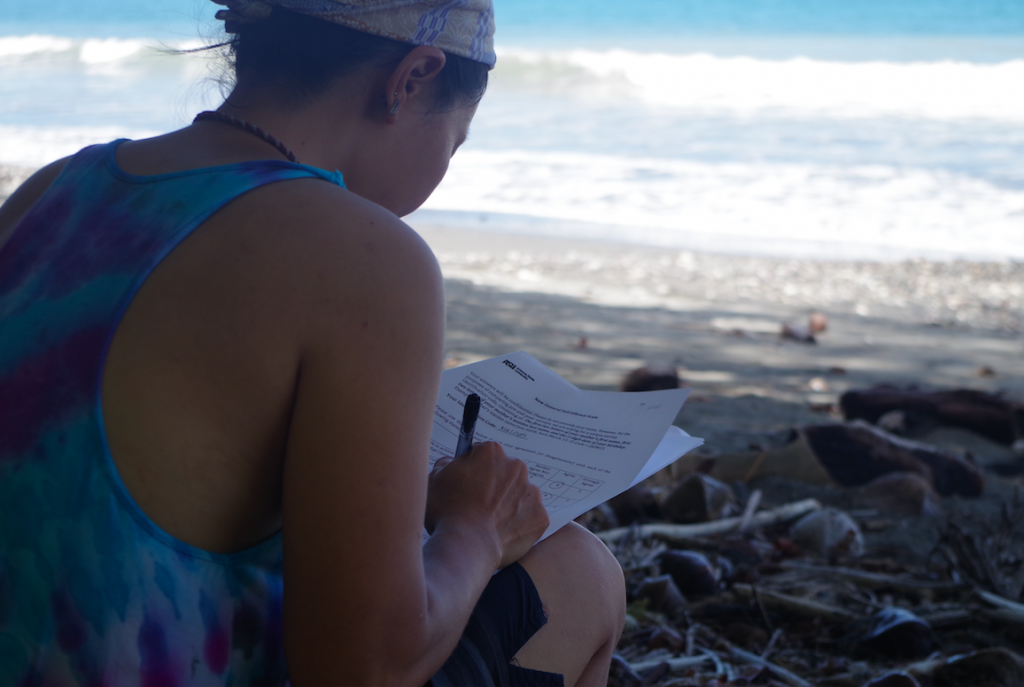
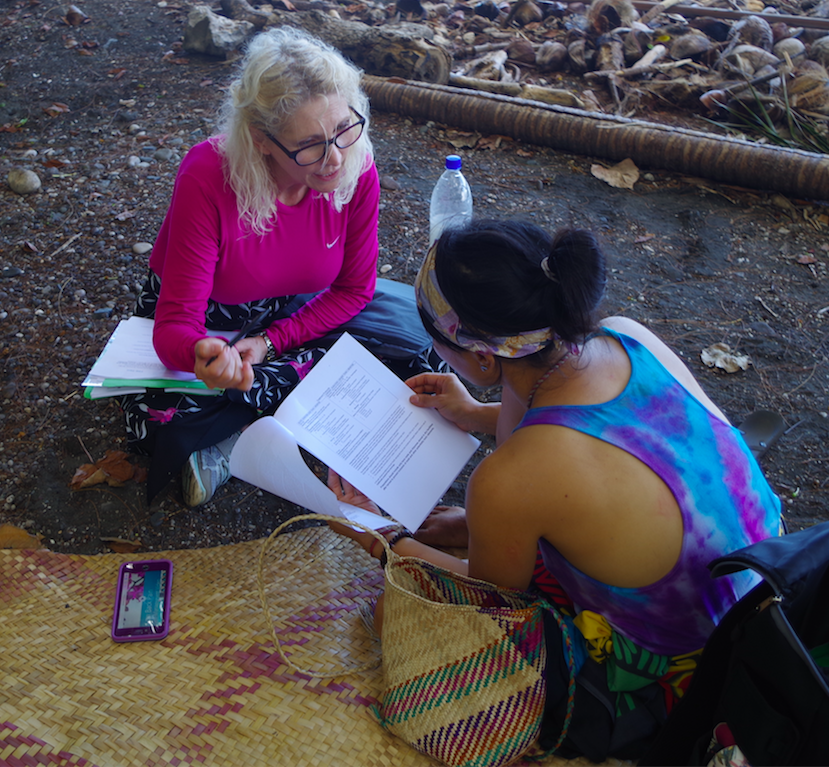
As we reviewed the ACP guidelines, we discussed consideration of short term use of a muscle relaxant as second-line therapy to interrupt progression from acute to chronic low back pain if exercise and stretching failed or was painful. Since there are no muscle relaxants available from the clinics in Vanuatu, we reviewed the judicious use of kava, a native folk medicine with muscle-relaxant qualities used ubiquitously in Vanuatu. In fact, Kava has been an integral part of spiritual ceremonies, social lubrication, and traditional medicine throughout the South Pacific for the past 2000 years. So, I felt the teachings should focus on the safety recommendations found Joint Report of the Food and Agriculture Organization of the United Nations and World Health Organization’s study on Kava Safety (2016); a detailed and eye-opening regarding the potential risks and benefits of kava. Nhia was very surprised to learn kava interacts with 90% of all medications, should not be consumed during pregnancy or breastfeeding, can result in treatment failure for HIV and TB, and is very unsafe to mix with alcohol. Additionally, 7% of Caucasians are unable to process kava; a genetic factor placing some PC volunteers at increased risk as they attempt to integrate into the local culture. We reviewed the warning signs of toxicity, the need to stop kava immediately if symptoms appear, and the risk of liver cirrhosis or failure if misused. We also discussed the WHO/UN findings on what is considered safe consumption, how the kava should be prepared, and consumption volume limits. Nhia stated that until now kava had not been a consideration in her clinic, but she will share this information with the nurse practitioner in her clinic to establish a method of screening and education for their patients. It was incredibly gratifying to hear SolarSPELL was going to change medical practice and positively impact healthcare on Malakula.
